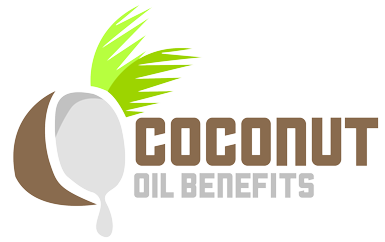The Coconut – The Adaptable Fruit
The coconut has been prized for centuries for its great versatility. Found in tropical and subtropical regions, it is part of the daily diet of many people throughout the world; but more than a source of food and water, the coconut also has numerous commercial and industrial uses from the tough husks to the leaves of the palm tree. One reason for its status is its inflorescence: the coconut palm produces both male and female flowers, thus self-pollinating. Moreover, it produces flowers continuously and is not subject to seasonality.
The Coconut as a Source of Oil
Coconut oil is extracted from the meat of the coconut and has several applications, including food, beauty, and domestic applications. Because of its high saturated fat content, it resists rancidity and has a shelf life of about two years. It burns at a very high temperature, making it ideal for cooking and frying. Coconut oil was eschewed for a time due to its high saturated fat content, being replaced by the food industry with trans fats, until the dangers of the latter became known. Coconut oil has been considered a villain for many years, blamed for causing clogged arteries and leading to impending death from heart attacks; but recent studies have refuted those admonitions. Now, coconut oil is seeing a resurgence in popularity, especially among health food aficionados and vegetarians.
Coconut Oil For Skin Care
The big news is that coconut oil has now come into vogue, and specifically, coconut oil for skin care, which has finally earned its place next to some of the biggest names in the industry. It is the high saturated fat content in coconut oil that is credited with the moisturizing and beautifying effects that makes it so popular. Coconut oil has been shown to keep skin moist and supple, and for protecting hair from protein loss. Moreover, coconut oil seems to be a terrific hair detangler. Soaps made with coconut oil help to moisturize the skin even in hard water.
The main saturated fat in coconut oil is lauric acid. Research has shown that lauric acid increases good cholesterol, and proponents claim that it is actually a miracle substance, with antimicrobial, antibacterial, antifungal, and antiviral properties, that also happens to smell good! Coconut oil has antioxidant properties as well, so using coconut oil for skin care is a logical means of warding off free radicals that can cause wrinkles and skin damage. With skin buffed up, supple and moist, no makeup is necessary; but if you use it, you may find that coconut oil works extremely well as a makeup remover, especially for the newer mascaras that tend to remain stubbornly stuck to your lashes. Using coconut oil for skin care, including cleansing the skin, is what sets this natural oil apart from other synthetic lotions and potions, regardless how well regarded they may be. The best coconut oil for personal use is virgin coconut oil, where no chemicals are used.
Coconut oil is also a superb night cream. It is easily absorbed by the skin. In addition to its moisturizing properties, the fatty acids in the oil also help your skin to improve its natural lipid barrier, keeping hydration in.
What about your lips? The same fatty acids that help your skin lock in moisture also help your lips have a full, young, and glowing look and feel.
Using coconut oil in your manicure and pedicure is a smart move. Coconut oil has antifungal qualities, and when used as a cuticle remover, it acts to protect your nails and skin as it moisturizes them.
As a body scrub, coconut oil for skin care has excellent exfoliating properties. Simply mix some coconut oil with sugar or salt, and your skin will not only be smooth as silk, but will also enjoy the benefits of its antibacterial properties.
Coconut oil can also be used as a sensual massage. The emollient properties of the oil are long-lasting, which is perfect for a lingering massage, while simultaneously moisturizing your skin.
So who’s afraid of a little coconut oil? Go ahead – use some coconut oil for skin care. Your body will thank you.







